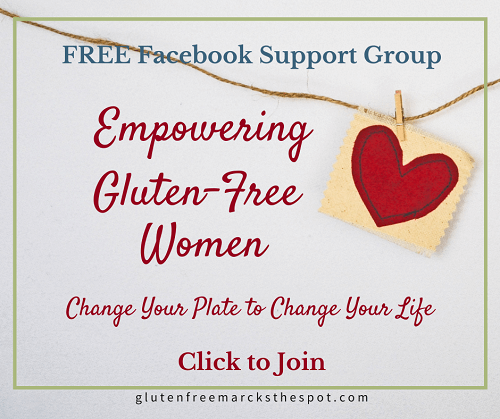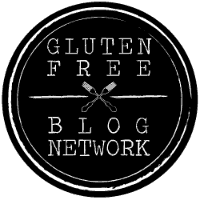Have you covered the bases on what your gluten-free life should include? What’s important?
Check out these 5 things your
gluten-free life needs –
What do you already have in place?
Testing
Testing for Celiac Disease or gluten-intolerance has changed a lot over the last few years.
The one thing that does remain constant:
TEST BEFORE starting a gluten-free diet.
Testing after you start eating gluten-free will not give accurate results. Once you feel fabulous being gluten-free, the last thing you’ll want to do is start eating gluten again.
Think about it – You would need to eat gluten for 6-8 weeks before testing again. Please, test before you start your gluten-free lifestyle.
Genetic Testing is a big question
for many. Should you?
Running genetic testing all depends on what you are looking to find. You can test positive to have the genetic Celiac markers, yet NEVER get Celiac in your lifetime. On the other hand, you can test negative for Celiac genes and still be intolerant to gluten. Therefore, you still have to follow a gluten-free diet.
If you have the Celiac gene markers it
does not mean that you have Celiac Disease.
We all carry genes in our body that may or may not be “turned on” in our lifetime. Genes are turned on and off due to environmental factors and our lifestyles, such as our food choices, exercise, sleep, and stress levels.
For further information on testing, check out these three articles by Dr. Tom O’Bryan, Beyond Celiac and The Celiac Disease Foundation.
Real, Whole Foods
Typically it takes years to diagnose Celiac Disease or gluten-intolerance, which equals many years of undetected havoc to our bodies.
Following a gluten-free lifestyle will help to regain our health. Yet, we need to go further.
Eat real, whole, nutritious foods.
Feed your gut with greens, along with lots of fruits and veggies. Your body needs time to regain health and re-energize.
Eating well will replenish the balance that has been lost in the intestines.
Drinking a smoothie loaded with greens, veggies, and fruit is a powerful way to start your day. Brown rice with a veggie stir-fry or a root vegetable soup will replenish the body. Hit the Farmer’s Market and load up on goodness – all easy ways to eat whole foods.
Supplements
Adding supplements to help your body recharge from years of distress is a smart move. People are often low in Vitamin D, which is a good place to start. Typically a gluten-free diet is also lacking in B vitamins, calcium, iron, and folate. A probiotic can help balance the gut, and taking a good multivitamin is a good practice as well.
Talk with your doctor and have your vitamin levels tested and discuss which supplements you need.
Don’t forget that your vitamins and supplements also need to be gluten-free.
Less Sugar and Processed Foods
While it’s best to increase the goodness in your food options, try to decrease your junk food choices.
Sugar causes a lot of distress to the body, especially to the gut, feeding the bad bacteria which causes more bloating and gas. Once you’re gluten-free, this is not a wanted reaction!
Decrease your sugar, especially corn syrup and high fructose corn syrup, as well as artificial sugars – which can do even more damage to your intestines. Try maple syrup or honey if you need a bit of sweetness.
Processed foods are loaded with unwanted ingredients that can cause an imbalance in the gut. Do you read food labels? Now is the time to become a food label reading warrior!
Products with long, hard to pronounce ingredient lists do not make good choices. These provide little health benefits, especially with the extra additives and preservatives. Watch those products that have sugar listed as the first ingredient.
I understand we get excited when we find a new gluten-free item – especially if it’s a decadent dessert and tastes great. It’s OK to have this every so often, just not every day.
Try to eat as clean as you can, especially at the beginning of your gluten-free journey to gain health. Devouring all the gluten-free processed foods will not help in this endeavor.
Your gluten-related reactions may not go away if you choose to eat processed foods – instead, they may cause you to start developing new issues.
There are many gluten-free healthy options – keep looking, reading labels and you will find them!
Support
Support can be tough to find. No one should go through this gluten-free journey alone.
Your family may not automatically be your biggest support fans, which may come down to misunderstanding.
I found those who didn’t understand Celiac Disease and gluten-intolerance, were much less supportive of me at the beginning of my journey.
As you learn what you can and cannot eat, how to set up your kitchen, how to prepare your gluten-free foods, and all about cross-contact or cross-contamination, share this with those around you.
Be especially open with family or roommates who live with you.
Once I started explaining WHY I was doing what I needed to do, I gained more support. No, I wasn’t just acting out for attention. I wasn’t trying to make a scene. I wasn’t being a Prima Donna being so precise about ordering my food. There was a real reason behind it all. Yes, it’s hard to always have to explain this!
Gaining support from your family is awesome. Be prepared that some just won’t get it, or don’t want to. Fear may set in for some, wondering if they may have gluten issues, and many push it under the rug. You can see them thinking, “Oh no, that could never be me”. Yet, you see them with all the same complaints and issues you had before beginning your gluten-free journey. Hopefully, they will come along as time passes.
You don’t need to shout from the rooftops that you are gluten-free. Share when you feel it is important and would help your situation. You’ll gain support by offering information to help those around you understand.
To best help, find gluten-free support groups in your area. Look for Gluten-Intolerance Groups near you, talks in nearby Health Food Stores or hospitals, and other community allergy groups for support.
Many Facebook groups on-line are great for support, posting questions, and gaining understanding. Everyone in the group is going through the same issues so there’s a lot of compassion and sharing. One word of caution, be careful with some advice, especially medical, as unfortunately, there’s a lot of misinformation shared.
Two groups to check: Celiac Disease Support Group and Gluten-Free. Don’t forget to join our FREE Facebook Group, Gluten-Free Moms Building a Life They Love.
Check out Beyond Celiac and Kids with Food Allergies. Both are full of information and support.
Implement these 5 things and start
building your best gluten-free life!
Looking for more support on
your gluten-free journey?


















